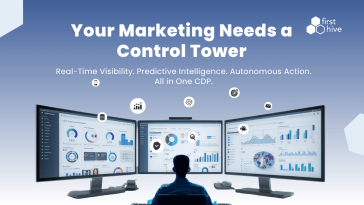Marketing analytics is the practice of collecting and analyzing data to optimize marketing activities and drive data-informed decision-making. It involves using various tools and skills to extract insights from marketing campaigns and customer behavior. With marketing analytics, businesses can gain a deeper understanding of their customers, refine their marketing strategies, and predict the success of future campaigns.
Important Marketing Analytics Tools and Skills
To work effectively with marketing analytics, professionals need to familiarize themselves with a range of tools and skills. Some of the important tools include:
- Web analytics platforms
- Social media analytics tools
- Customer relationship management (CRM) systems
- Data visualization software
Skills required for marketing analytics include:
- Data analysis
- Statistical analysis
- Marketing strategy
- Problem-solving
- Communication
4 Benefits of Marketing Analytics
- Get a complete view of all marketing activities: By analyzing data from different marketing channels, businesses can gain a comprehensive understanding of the performance of their marketing efforts.
- Gain a better understanding of your customers: Marketing analytics provides insights into customer behavior, preferences, and demographics, allowing businesses to tailor their marketing strategies accordingly.
- Refine your marketing strategy: Data-driven insights enable businesses to optimize their marketing campaigns, targeting the right audience with the right message at the right time.
- Predict the success of future marketing campaigns: By analyzing past data, businesses can make data-informed predictions about the outcomes of future marketing campaigns, reducing risks and improving ROI.
Using Marketing Analytics to Develop Marketing Strategies
Marketing analytics plays a crucial role in developing effective marketing strategies. By analyzing data from various sources, businesses can identify trends, patterns, and opportunities to optimize their marketing efforts. It helps businesses answer questions such as:
- Which marketing channels are driving the most conversions?
- What customer segments are most valuable?
- Which marketing campaigns are generating the highest return on investment (ROI)?
Marketing Analytics Examples
Here are a few examples of how marketing analytics can be applied:
- Segmentation analysis: Analyzing customer data to identify different customer segments based on demographics, behavior, or preferences.
- Attribution analysis: Determining the impact of each marketing touchpoint on the customer journey to allocate resources effectively.
- Customer lifetime value (CLV) analysis: Calculating the projected value of a customer over their lifetime to prioritize marketing efforts.
Marketing Analytics vs. Market Analysis
In this blog, the author discusses the difference between marketing analytics and market analysis. They explain that while marketing analytics is a specific approach that uses data to improve marketing strategies, market analysis is a more comprehensive concept that involves evaluating various aspects of the market.
The author emphasizes that marketing analytics is a subset of market analysis, meaning that it is a specific component of the broader analysis process. Marketing analytics specifically focuses on utilizing data to gain insights and make informed decisions regarding marketing activities.
On the other hand, market analysis encompasses a wider scope. It involves assessing market conditions, such as the overall state of the market, including factors like demand, supply, and consumer behavior. Additionally, market analysis also involves evaluating competition within the market, including identifying competitors, analyzing their strategies, and understanding their strengths and weaknesses. Lastly, market analysis also considers industry trends, such as emerging technologies, changing consumer preferences, and market dynamics.
The author highlights that while marketing analytics is crucial for optimizing marketing efforts, market analysis provides a more holistic understanding of the market. By conducting a thorough market analysis, businesses can gain valuable insights into the overall market landscape, identify opportunities and threats, and develop effective marketing strategies.
In conclusion, marketing analytics and market analysis are related concepts, but they differ in their scope and focus. Marketing analytics is a specific approach that uses data to improve marketing decision-making, while market analysis is a broader concept that involves assessing market conditions, competition, and industry trends. Both are essential for businesses to succeed in today’s competitive market.
Build Marketing Analytics Skills on Coursera
Coursera offers a range of courses and specializations to help professionals build their marketing analytics skills. These courses cover topics such as data analysis, marketing metrics, customer segmentation, and predictive modeling. By completing these courses, professionals can enhance their expertise and stay updated with the latest tools and techniques in marketing analytics.
Conclusion
Marketing analytics is a crucial tool for businesses to develop stronger, more data-informed marketing strategies. By leveraging the power of data, businesses can gain valuable insights into customer behavior, optimize their marketing campaigns, and predict the success of future initiatives. With the right tools and skills, professionals can unlock the full potential of marketing analytics and drive business growth.








